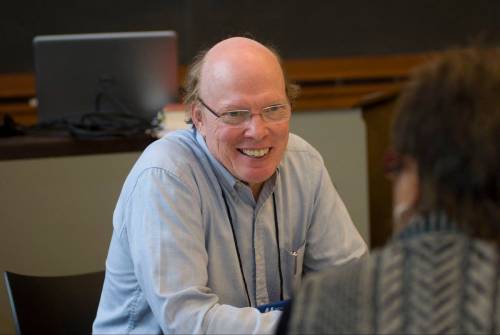Galbreath’s work will help congregations link discipleship with Earth care
By Union Presbyterian Seminary | Special to Presbyterian News Service

The Rev. Dr. Paul Galbreath is Professor of Theology at Union Presbyterian Seminary. (Contributed photo)
LOUISVILLE — Union Presbyterian Seminary Professor of Theology the Rev. Dr. Paul Galbreath has been awarded a grant from the Calvin Institute of Christian Worship to develop liturgical resources for congregational use that link Christian discipleship and Earth care, grounding environmental advocacy in corporate worship practices.
According to a seminary news release, Galbreath will use the $18,000 grant to provide primary support for a commitment to creation care that is grounded in Scripture, reflection, and prayer; and to produce prayers and liturgies that support congregational and individual engagement in caring for the Earth. The project will focus on six pilot congregations in the Pacific Northwest that were part of an earlier study that led to the publication of the book “Leading into the World.”
“Our research will approach the topic of creation care from a distinctive Christian framework by careful examination of the ways that Scripture and Christian worship practices form and inform the choices that we make to care for the Earth,” Galbreath said. “It will include a critical assessment of ways that liturgical language and practice have avoided and misused references to the Earth and to identify ways that local liturgical practice can provide a basis for environmental engagement that reflects Christian discipleship.”
The Calvin Institute of Christian Worship provides resources for those participating in and leading worship. Its Vital Worship Grants assist in renewing worship practices in congregations and communities.
![]() You may freely reuse and distribute this article in its entirety for non-commercial purposes in any medium. Please include author attribution, photography credits, and a link to the original article. This work is licensed under a Creative Commons Attribution-NonCommercial-NoDeratives 4.0 International License.
You may freely reuse and distribute this article in its entirety for non-commercial purposes in any medium. Please include author attribution, photography credits, and a link to the original article. This work is licensed under a Creative Commons Attribution-NonCommercial-NoDeratives 4.0 International License.